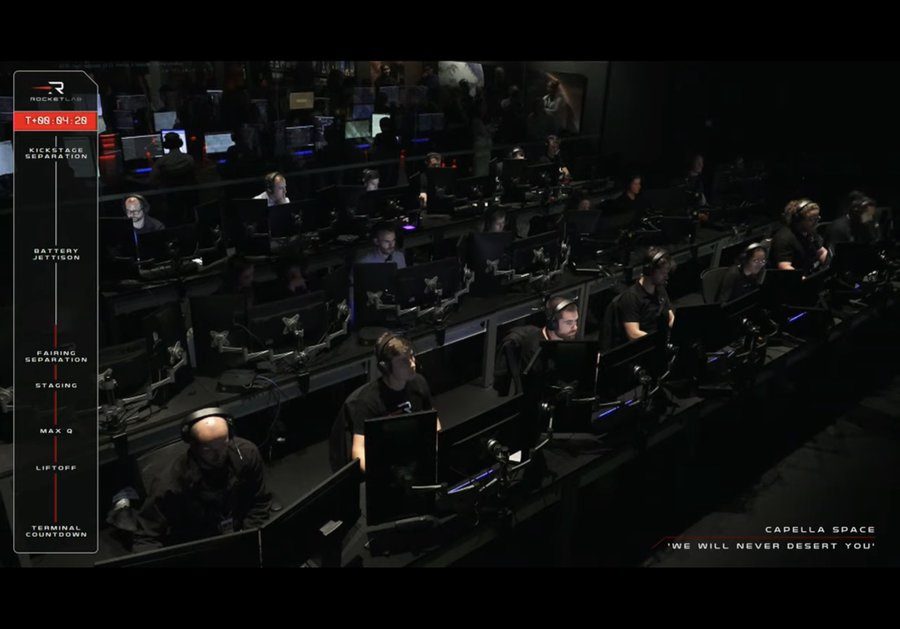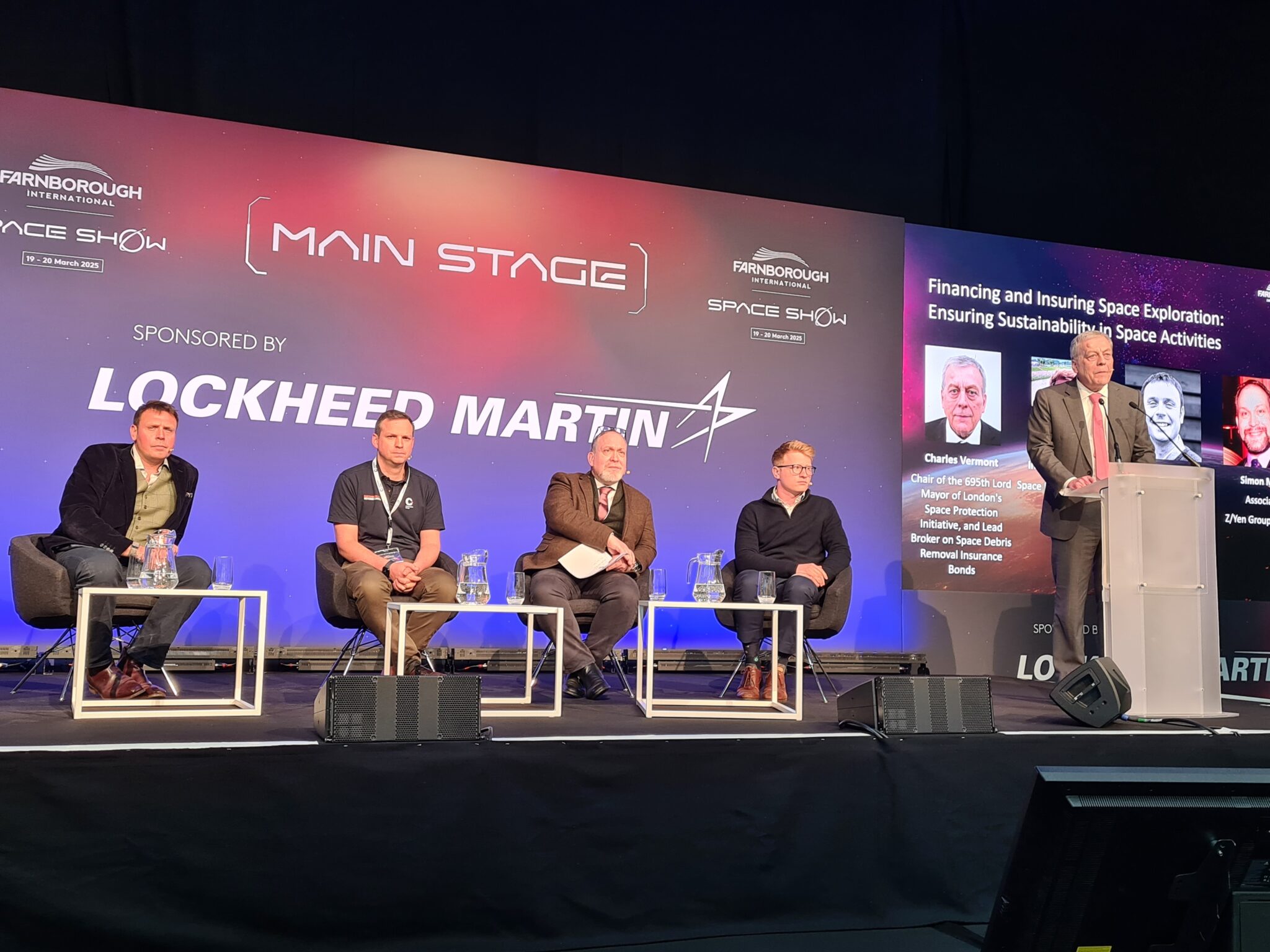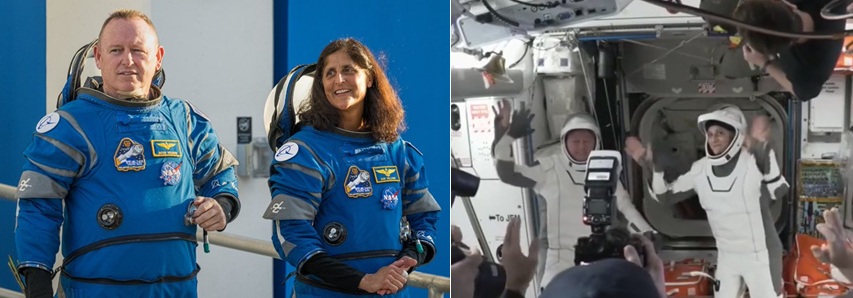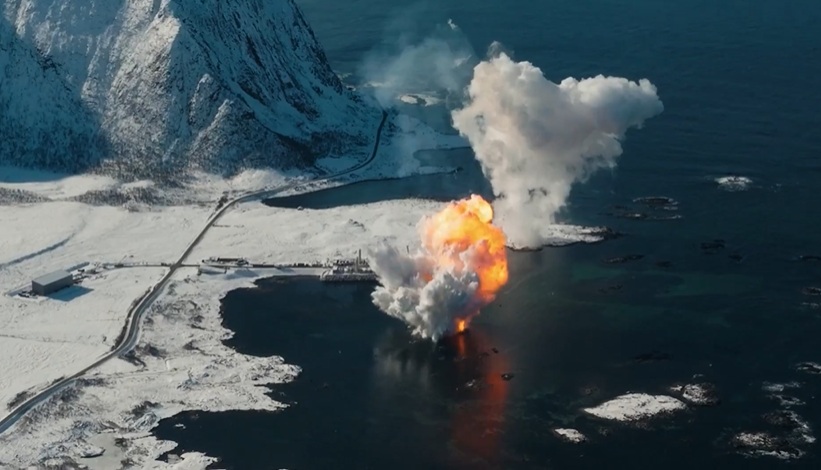Rocket Lab has released the results of its investigation into the launch failure of its Electron KS rocket on 17 September 2023. Rocket Lab launched Electron KS from Māhia Peninsula, New Zealand, at 0655 GMT on 19 September 2023. The Electron was carrying Acadia 2, Earth observation satellite from Capella Space. The rocket’s first stage successfully separated (but not recovered) but the second stage engine failed to ignite properly and the assembly fell into the Sea. The spacecraft was insured for US$3 million.

Rocket Lab control room during the failure. Courtesy: Rocket Lab via Twitter/Justin Davenport
The investigation noted that after separation of the first stage, at 151 seconds into the mission, high voltage from the second stage’s power supply system anomalously fell sharply due to an unexpected electrical arcing event in the power supply to the Rutherford engine’s motor controllers. This also shorted the battery packs providing power to the entire second stage. Thus this was unable to reach orbital velocity to deliver the mission’s payload, subsequently re-entering the atmosphere and ending the mission.
Analysis using Paschen’s Law for an arc to form and travel in the low-pressure space environment showed that the following conditions were in place to allow this arcing to take place:
- A superimposed alternating current (AC) with the direct current (DC) high-voltage electricity provided to the stage’s power supply system, that is produced as a ripple voltage from the system’s engine motor controllers;
- A small concentration of helium and nitrogen gasses that were present within the interstage between Electron’s first and second stages; and
- An imperceptible fault in the insulation of the high voltage loom within the power supply system.
These factors combined, including electricity in the presence of both helium and nitrogen, while under a partial pressure environment, unrestrained by a fault in the high voltage loom, and exacerbated by an alternating current, aligned at a point on the Paschen curve that allows an electrical arc to form and travel.
To ensure the fault does not present again, Rocket Lab is implementing two key corrective measures — one designed to improve testing on the ground and another to eliminate the possibility of comparable arcs occurring in flight should similar faults evade the new enhanced testing process.
Rocket Lab hasalso modified Electron’s battery frame section which houses the high voltage power supply system to enable it to maintain optimum gaseous pressure from launch through to stage separation from Electron’s Kick Stage. Pressurizing this section significantly reduces the ability for arcs to form.
Rocket Lab founder and CEO Peter Beck said: “This is a highly complex, improbable, and evasive issue that the team has been relentless in investigating and fixing so we can put an even better vehicle back on the pad.”
Rocket Lab has already received authorisation from the Federal Aviation Administration (FAA) to resume Electron launches from its US launch sites.







